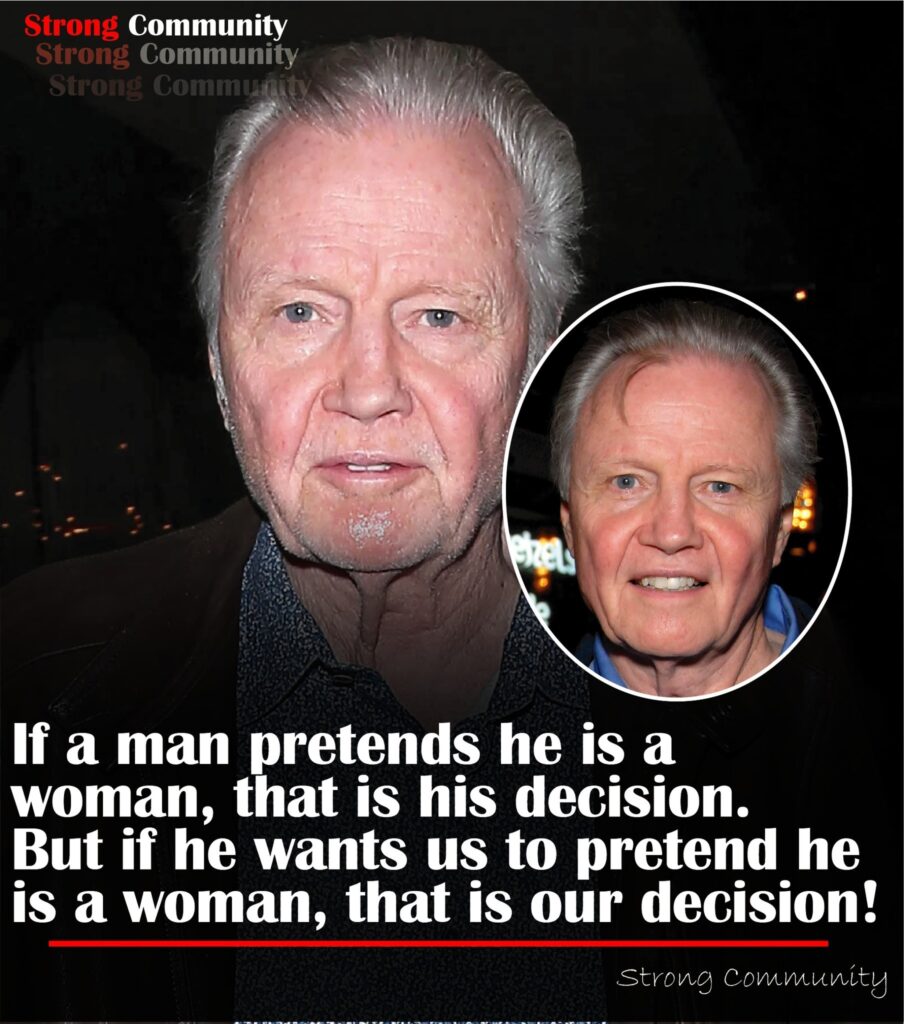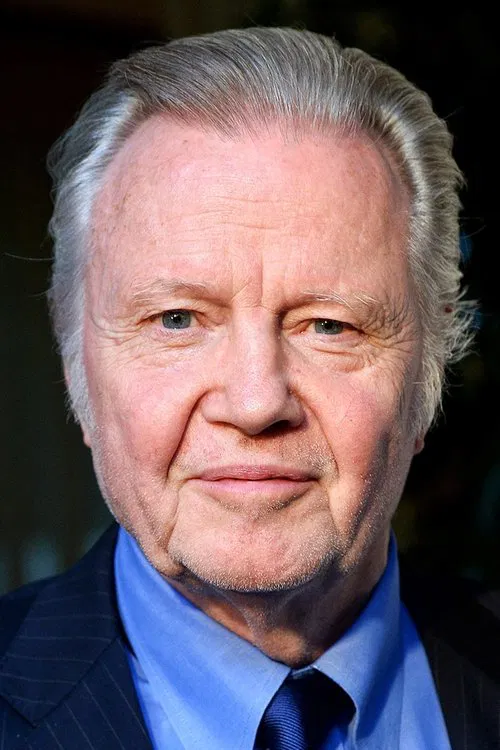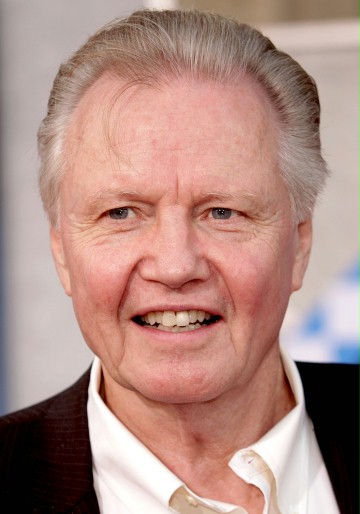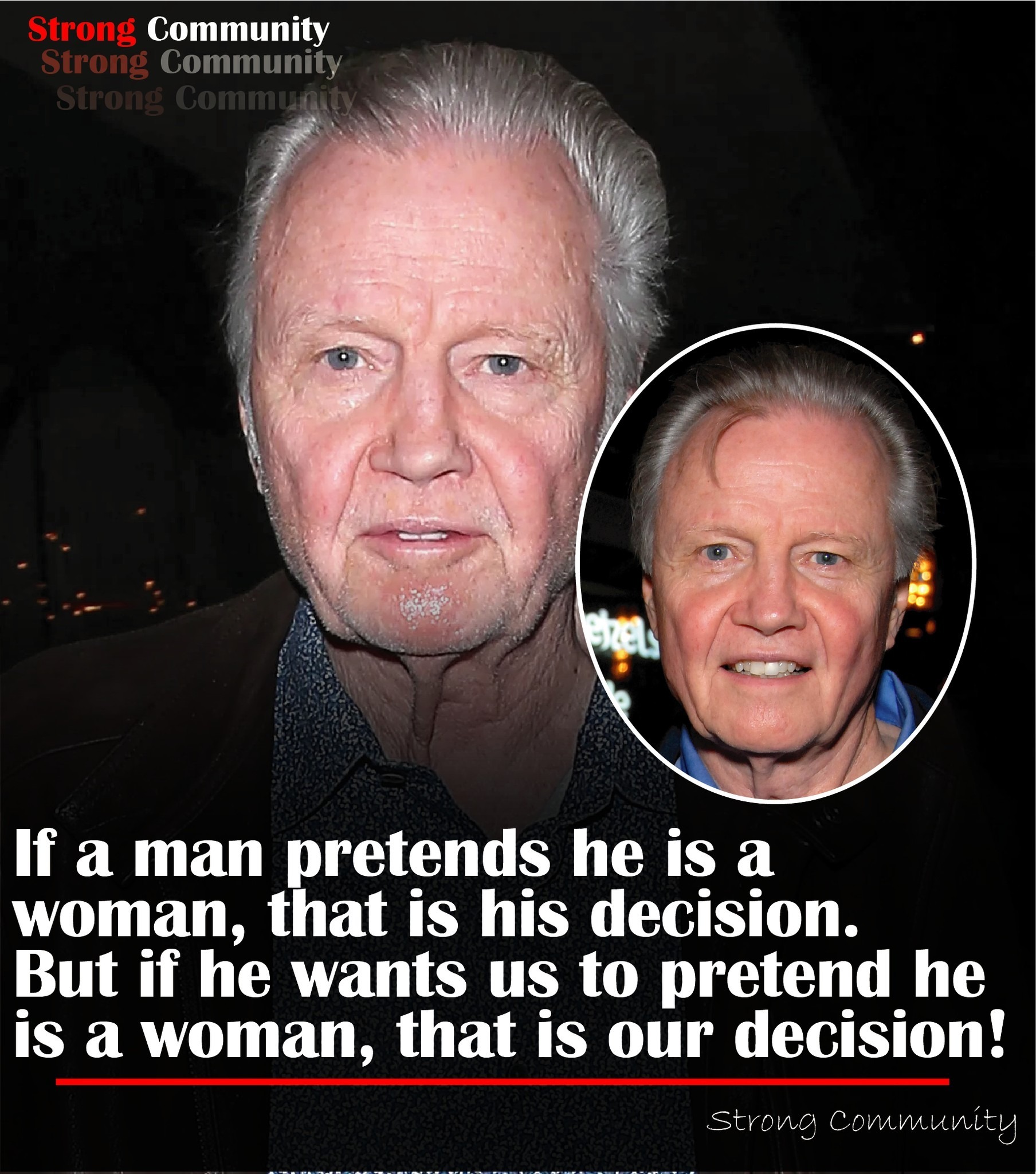James Voight Speaks Out:: In an age where public discourse is more polarized than ever, actor and outspoken conservative James Voight has once again taken center stage—not for a new film, but for a powerful cultural statement. With decades of experience in Hollywood and a reputation for speaking his mind, Voight delivered remarks that have struck a chord with millions of Americans who feel that their voices have been overshadowed by ideological conformity.
James Voight Speaks Out: “Respecting Choices Doesn’t Mean Forcing Beliefs”
Speaking on the contentious topic of gender identity and societal norms, Voight didn’t mince words. He emphasized the growing tension between personal freedoms and what he describes as the imposition of belief systems that, in his view, challenge objective truth.

“Respecting choices doesn’t mean forcing beliefs,” Voight stated. “We must protect the right for individuals to live freely, but that doesn’t include pressuring the rest of society to abandon long-standing truths or values.”
A Cultural Crossroads
Voight’s comments arrive at a cultural crossroads where discussions around identity, freedom, and truth are more urgent than ever. As schools, corporations, and media platforms increasingly adopt policies and language that reflect changing views on gender and identity, a significant portion of the population feels alienated—especially those who hold traditional or faith-based perspectives.

Voight argues that there is a critical difference between tolerance and compliance. Tolerance, he says, is foundational to any free society. It allows people to live as they choose, without fear of violence or suppression. Compliance, on the other hand, implies that individuals must adopt or affirm beliefs they do not hold—often under threat of social, professional, or legal consequences.
“Freedom means allowing others to live according to their convictions—but it also means allowing me to live according to mine,” Voight said.
He pointed to recent controversies surrounding pronoun usage, public restroom access, sports participation, and school curriculum as examples of how ideological conformity, in his view, is being enforced at the cost of open dialogue and mutual respect.
The Cost of Silence
Voight’s statement is more than just a personal reflection—it’s a rallying cry. His message resonates with a growing number of Americans who feel that their traditional values are being portrayed as outdated, harmful, or even hateful.
“We’re told that silence is violence—but when we speak up, we’re silenced,” Voight said. “That’s not justice. That’s coercion.”
Many conservatives echo this sentiment, arguing that public discourse has shifted to the point where disagreement is labeled as bigotry, and questioning prevailing ideologies can result in public shaming, censorship, or loss of employment. For them, Voight’s voice represents a refusal to be quieted—an affirmation that dissent is not only allowed in a free society, but necessary.
Balancing Freedom and Truth
At the heart of Voight’s message is the conviction that freedom must be balanced with truth. He does not call for discrimination, nor does he advocate for cruelty or exclusion. Instead, he calls for honest discussion—one where deeply held beliefs can coexist, and where truth is not sacrificed on the altar of ideological trend.
“We must love one another without lying to one another,” he said. “There’s nothing loving about demanding someone betray what they know to be true.”
Voight acknowledges that individuals must be treated with dignity and kindness. But he also emphasizes that kindness should not be confused with blind affirmation. As a father and grandfather, he spoke personally about his concerns for future generations growing up in a society where identity is increasingly politicized and reality seems open to reinterpretation.

The Role of Hollywood
Hollywood, long known for its progressive leanings, hasn’t always embraced voices like Voight’s. Yet despite criticism from peers and the press, he has remained steadfast in sharing his perspective. His platform may be rooted in celebrity, but his message is one of everyday concern—about how rapidly cultural shifts are affecting education, faith, parenting, and civil liberties.
“I’m not trying to be provocative,” Voight said. “I’m trying to be honest. Too many people are afraid to speak because they’ve seen what happens when someone dares to question the narrative.”
He calls upon other public figures, particularly those who share his values, to have courage. “It’s not about being loud,” he adds. “It’s about being clear—and being unafraid to stand.”
Respect Must Go Both Ways
One of the most powerful elements of Voight’s message is its emphasis on mutual respect. He believes that America can and must find a way to protect both personal liberty and cultural cohesion—but that requires honest dialogue and a willingness to allow ideological differences without branding others as enemies.
“Respect is a two-way street,” he said. “I respect the choices others make for their lives. All I ask is that mine be respected in return.”
He warns that if society continues to vilify dissent, we risk eroding the very principles that make freedom possible. “A society that punishes you for saying what you believe is not free,” he cautioned.
A Call to Action
In closing, Voight’s remarks are not merely observations—they are a call to action. He urges fellow Americans to speak up, remain firm in their convictions, and push back against what he sees as forced ideological conformity. He stresses the importance of teaching children to think critically, to love compassionately, and to stand courageously for truth—even when it’s unpopular.
“America must stand strong—not just against threats from abroad, but against the silencing of its own citizens,” he said.
James Voight’s message may not be universally popular, but it reflects a real and growing concern for many who feel left behind in today’s cultural conversation. His words remind us that a truly diverse society is one where differing beliefs are not only tolerated—but respected.





